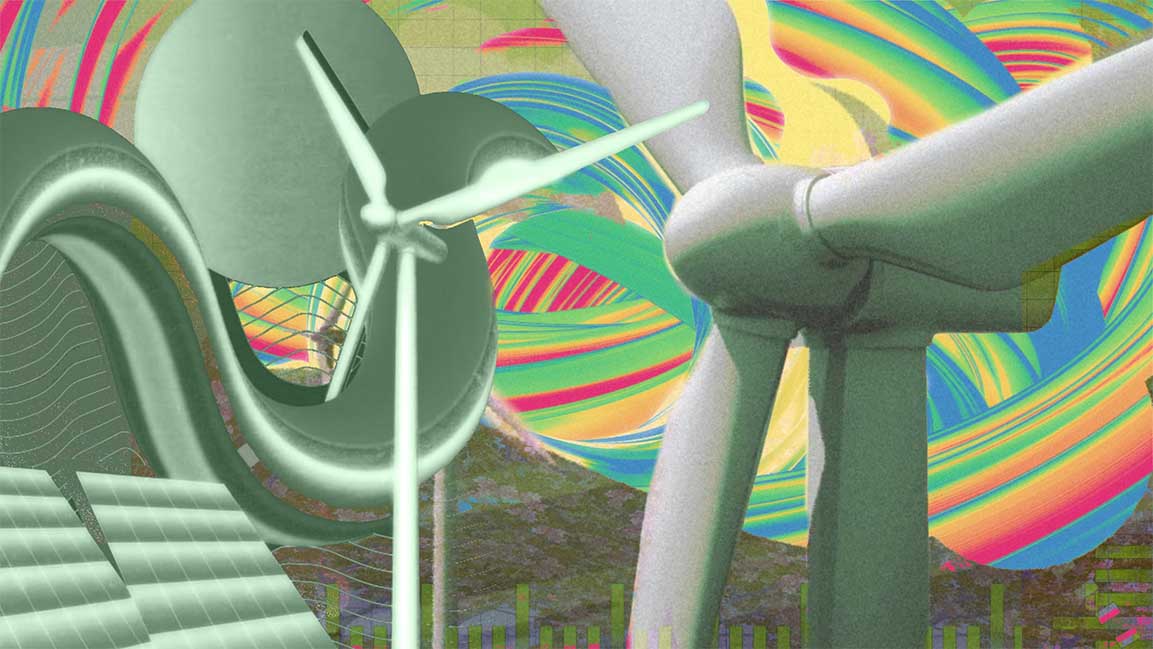- | 9:00 am
Are MENA countries getting rewired for the green economy?
From hydrogen production to recycling and renewable energy, Saudi Arabia, UAE and Egypt are pivoting toward a sustainable future.

According to an Intergovernmental Panel on Climate Change (IPCC) report, the time to work together to mitigate climate change is now. Climate change demands action, and countries in the MENA region have taken steps to adopt climate-change strategies. According to an IBM report, most of the CEOs and organizations in the Middle East are putting sustainability and clean energy as their top priority; they think sustainability investments will accelerate business growth.
Huge initiatives and projects have been launched in the region, such as supporting green startups providing sustainable solutions, recycling plastic and electronic waste, and renewable energy to prepare for the changes that could occur in years and decades.
Somewhat surprisingly, without inflicting severe damage on the economy.
“The Middle East is critical in leading the net-zero transition. Many countries rapidly adopt solar and other sustainable energy solutions to diversify their energy mix,” says Jeremy Crane, CEO, and founder of Yellow Door Energy. For instance, Jordan aims to reach 50% renewable energy by 2030. The UAE, Bahrain, and Saudi Arabia have net-zero emission targets by 2050 and 2060, respectively.
Under pressure to decarbonize, Saudi Arabia has announced a raft of measures to deal with the intensifying climate crisis.
“Over the past years, the kingdom has held the responsibility of building and launching many green projects and initiatives that aim to preserve the environment,” says Yasser Alobaidan, Chairman of Jawraa and CEO of Tharawat Technology.
At the Middle East Green Initiative, Saudi Crown Prince Mohammed bin Salman presented a series of plans to address the dangers of global warming. The initiatives included achieving net-zero greenhouse gas emissions by 2060, planting 50 billion trees in the Middle East in the decades to come, and launching a $10.4 billion clean energy project for the region.
“Additionally, the revolutionary Neom’s project “The Line” is a masterpiece, a civilizational revolution, and the first smart linear city that runs on 100% renewable energy and 95% of the land will be preserved for nature,” adds Alobaidan.
“All organizations must join hands in replacing old resources and be environmentally friendly.”
The energy crisis that started in 2021 is accelerating the energy transition, creating huge interest in hydrogen. With high renewables potential – wind and solar – Egypt, UAE and Saudi Arabia are now prioritizing development of green and blue hydrogen production not just for export to Europe and Asia, but also for internal consumption.
EASE THE IMPACT OF CLIMATE CHANGE
Sharm el-Sheikh, where the COP27 summit will take place in November, is another example of a green city. Intensifying efforts in preparation for hosting the climate change conference, Egypt launched several initiatives to resolve environmental problems and ease the impact of climate change. China recently sent solar equipment to Sharm el-Sheikh as it considers producing green energy and clean fuels. The government is partnering with numerous companies to beef up its green hydrogen and ammonia production.
Egypt also recently shut down a coal factory and launched a project to restore coral reefs in the Red Sea.
To support Egypt’s Vision 2030, Elsewedy Electric delivered one of the largest projects in Sharm el-Sheikh, building a vast charging station for electric buses in the coastal city as part of a robust transport system ahead of the highly anticipated event.
“We are happy that Sharm el-Sheikh hosts an inclusive and sustainable COP27; it supports the green industry to encourage people worldwide to reduce carbon dioxide emissions and other greenhouse gases,” says Ahmed Youssef, CEO of Triple Re.
With today’s throwaway culture creating a toxic timebomb—waste from electronic and electrical goods, or e-waste, and plastic waste is the fastest-growing form of rubbish—large-scale recycling projects are launched in Egypt.
“We are playing an important role in the recycling industry in Egypt by converting electronic waste into reusable and eco-friendly raw materials,” says Youssef. “We plan to scale up and invest in recycling e-waste and forecasting new techniques and technology for collecting e-waste and solid waste.”
FOCUSING ON GREEN ECONOMY
The UAE focuses on a green economy to support its long-term economic growth while protecting the environment. The country has launched initiatives to enhance the production and use of renewable energy, waste management, green buildings, and water reuse in irrigation to mitigate climate change.
“In 2017, the UAE launched an ambitious energy strategy that aimed for 50% of clean energy in its energy mix by 2050. The country is the first in the region to commit to net-zero by 2050 and next year will host COP28,” says Crane. “These commitments solidify the country’s position as a global sustainability champion.”
“We are contributing to the UAE’s sustainability ambitions by helping leading businesses, such as Nestlé, Unilever, Majid Al Futtaim, and more, switch to clean energy and reduce energy costs,” adds Crane.
Investing in the environment is one of the most important aspects of increasing employment opportunities and aiding economic development. “Reducing carbon emissions does not necessarily mean reducing economic activity,” says Crane.
Many countries in the region understand that it can decouple carbon emissions from economic growth. Renewable energy jobs reached 12.7 million in 2021, which is expected to double in the next decade. “The renewable energy sector continues to create employment, enhance economic growth, and lessen the impacts of climate change. People, organizations, and countries in the Middle East have a great opportunity to partake in the sustainable energy transition,” adds Crane.








































